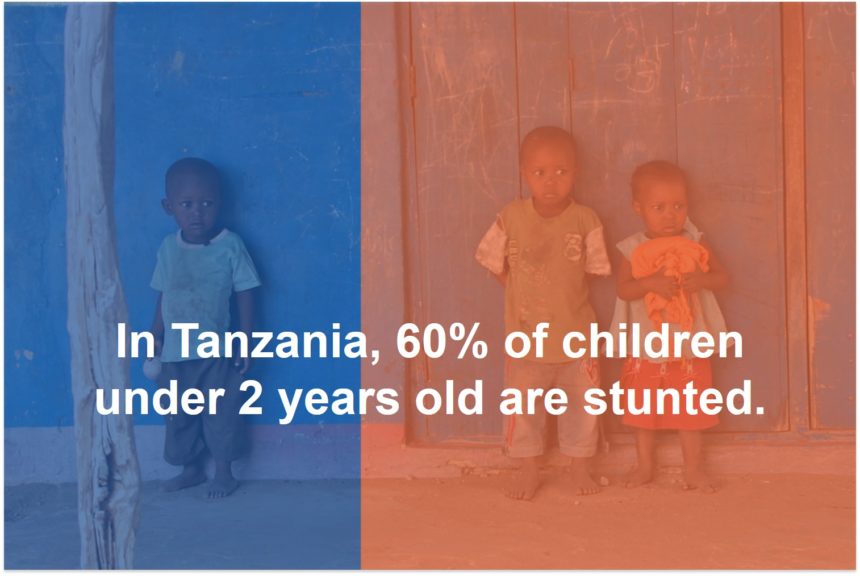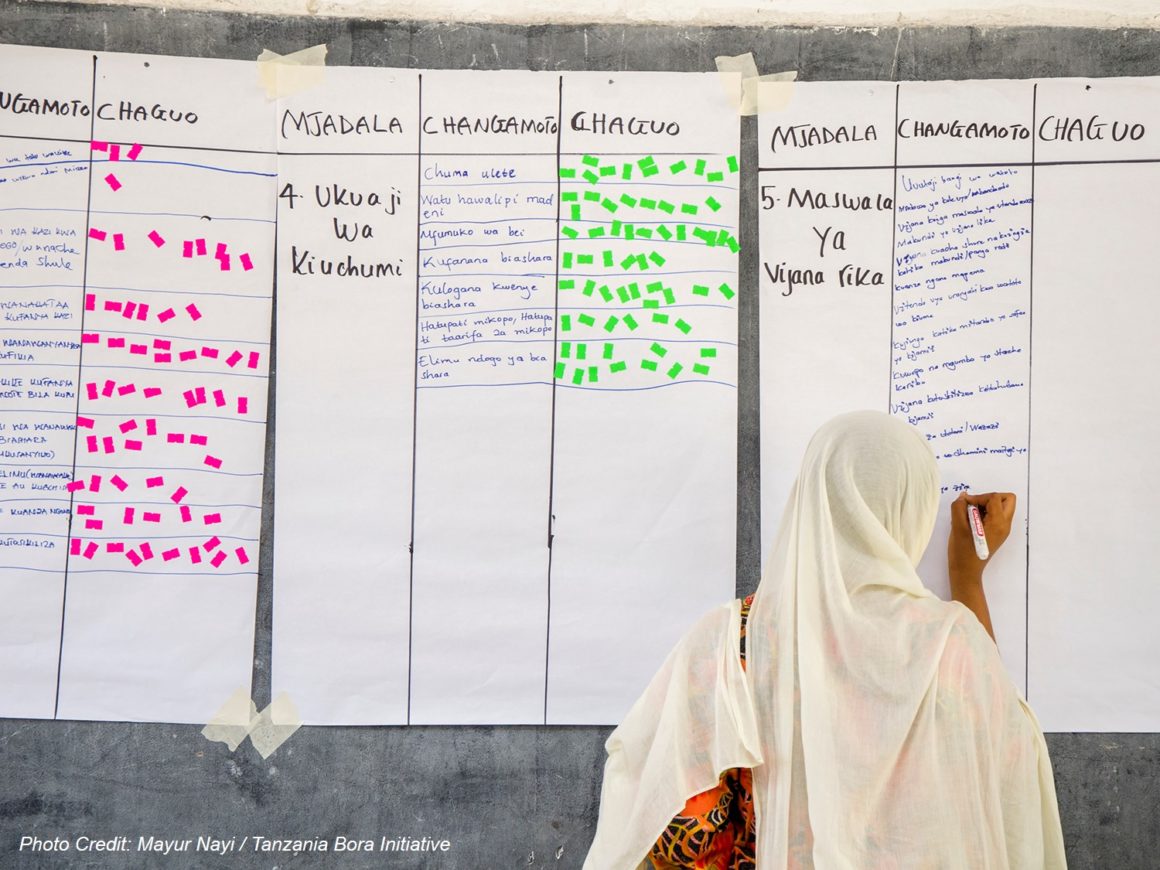The Data for Local Impact Innovation Challenge (DLIIC) has officially launched its fourth challenge window. The fourth Innovation Challenge Window will focus on problems identified by ordinary citizens in context of another DCLI project, Data Zetu, which is focused on increasing data use at the subnational level. In 2017, Data Zetu conducted listening campaigns in Temeke Municipal Council, Mbeya District Council, and Kyela District Council. By engaging citizens in these three districts, Data Zetu aimed to identify the top “pain points” or concerns facing communities. The fourth DLI Innovation Challenge Window is providing Tanzanian innovators with an opportunity to develop creative solutions to help address some of these issues: teenage pregnancy, substance abuse, physical/sexual abuse, and early childhood development. These issues are common to many of Tanzania’s communities, can be addressed with data innovations, and align with PEPFAR priorities to reduce HIV/AIDS infections. As always, DLIIC seeks innovative solutions that will improve the availability or use of data to tackle these social challenges in Tanzania.
The fourth challenge window opened for applications today, April 27, and will continue until June 11 at 4PM EAT. DLIIC welcomes qualified individuals, teams, and organisations to apply for the funding opportunity. Individuals and informal teams can apply for grants of USD 10,000-25,000 while registered organisations may apply for grants of USD 75,000-100,000. Grant funding will be awarded together with technical support from the DLIIC project team. For more details on the fourth challenge themes and complete competition rules, read the Applicant Resource Book.
“Our fourth challenge window is now opened. We need people and organisations who are qualified to participate by applying through our online application portal. But before applying, reading the Applicant Resource Book will help applicants understand better what are the DLI fourth challenge thematic areas,” said Mr. Agapiti Manday, the DLI Innovation Challenge Project Manager. He added “We are looking forward to receiving better and most innovative ideas from all the applicants for this window.”
Through innovation and data use, DLIIC aims to address the community pain points discovered by Data Zetu. Want to know more about these issues? Read the summary below, and find the listening campaign data sets here.

Focus Area 1: Teenage Pregnancy
Teenage pregnancy is a worldwide problem. In sub-Saharan Africa, an increasing number of girls are becoming mothers by the age of 18 years old. According to the 2016 Tanzania Demographic and Health Survey (TDHS), the prevalence of teenage pregnancy increased from 23% in 2010 to 27% in 2016. An estimated 8,000 girls drop out of school every year due to pregnancy, and pregnant teenagers are more likely to be forced into early marriage. Teenage pregnancies also contribute to high maternal mortality and morbidity rates; young women below the age of 20 years account for nearly 20% of all maternal deaths in Tanzania.
Teenage pregnancy is a result of early, unprotected sex, and the mean age of first sexual experience for girls in East, Central and Southern Africa has dropped to 13.6 years. This early sexual debut predisposes girls to early pregnancy and puts them at risk of abortion and sexually-transmitted infections (STIs), including HIV. Several research studies have shown a link between early sexual debut an increased risk for contracting HIV. In Tanzania, women aged 23-24 are twice as likely to be living with HIV than men of the same age.
Studies have shown that teenagers lack proper information about sexuality and associated health risks. How can we use data and innovation to reduce teenage pregnancies?
Focus Area 2: Substance Abuse
Substance abuse refers to the harmful or hazardous use of psychoactive substances, including alcohol and drugs. In Tanzania, drug or substance use has historically involved the use of cannabis (called bangi, msuba, kitu, or bomu), khat, tobacco, and a traditional liquor known as gongo. More recent reports show that cannabis is being smoked alongside heroin, and youths are mixing cannabis and heroin for a stronger effect.
Drug users can experience negative health consequences and a heavy financial burden. Substance abuse is also among the major causes of early sexual debut and interferes with contraceptive use, putting substance users at higher risk of unwanted pregnancy, STIs (including HIV), and violence. The Data Zetu listening campaign found that many youths start with cigarettes and cannabis, but eventually use injection drugs. Injecting drugs carries a high risk of infection with bloodborne viruses such as HIV, Hepatitis B, and Hepatitis C. According to WHO, sharing contaminated needles and syringes is a high-risk mode of transmission for these viruses.
How can we use data and innovation to improve efforts to target HIV/AIDS prevention, testing and treatment services, especially to people injecting drugs? Only organisations or institutions may submit applications for this focus area.
Focus Area 3: Physical and Sexual Abuse
 In 2011, Tanzania released the findings of the Violence Against Children (VAC) survey, which found that nearly one in three girls and one out of seven boys experience some form of sexual violence before turning 18. Sexual violence increases the risk of HIV transmission, especially among females. Most children do not report their experience, few seek services, and even fewer receive any care, treatment, or support if they do report. Rates of physical and emotional violence are high among all children (72% for girls and 71% for boys). The Data Zetu listening campaign identified physical and sexual abuse of children as a common issue. Citizens were especially concerned about adolescent girls and young women being forced into child marriages, commercial sex, and rape, all of which increase their risk of contracting HIV.
In 2011, Tanzania released the findings of the Violence Against Children (VAC) survey, which found that nearly one in three girls and one out of seven boys experience some form of sexual violence before turning 18. Sexual violence increases the risk of HIV transmission, especially among females. Most children do not report their experience, few seek services, and even fewer receive any care, treatment, or support if they do report. Rates of physical and emotional violence are high among all children (72% for girls and 71% for boys). The Data Zetu listening campaign identified physical and sexual abuse of children as a common issue. Citizens were especially concerned about adolescent girls and young women being forced into child marriages, commercial sex, and rape, all of which increase their risk of contracting HIV.
To ensure adolescents are growing in a safe environment, communities need comprehensive strategies that include rights-based and evidence-informed approaches. They should include government, adolescents, communities, civil societies and other stakeholders in addressing the structural and social factors that lead to abuse. Tools that help create awareness and change mindsets can be effective in addressing some of these issues, as can tools that help youth report physical and sexual abuse to the appropriate authorities without fear of being known by other family members or their abusers. How can we use data and innovation to reduce violence against women and children in our communities?
Focus Area 4: Early Childhood Development (ECD)
Early childhood development (ECD) depends on the care and attention that children receive in the first five years of life. Scientific research shows that the experiences children have early in life—and the environments they grow up in—shape their developing brain and strongly affect whether they grow up to be healthy, productive members of society. ECD encompasses the areas of health, nutrition, water, sanitation, hygiene, education, and child protection. Proper support in these areas enable children from 0-5 years to reach their full developmental potential. Therefore, stakeholder coordination is essential to provide integrated care for young and vulnerable children, particularly in the context of the HIV epidemic.
Young children affected by HIV/AIDS who do not receive adequate health care, nutrition, and psychosocial interaction are likely to be impaired in multiple ways—if they survive. Effective ECD HIV/AIDS interventions should include a combination of economic enhancement, sectoral programs, material and psychological support, and measures to help parents infected with HIV/AIDS live longer. During Data Zetu’s listening campaigns, citizens identified problems of poor childhood nutrition due to poverty, lack of child-friendly health services and educational facilities, poor parenting, and diseases – all factors contributing to ECD.
ECD investments for supportive care, early learning activities, and improved school readiness combined with proper health and nutrition interventions increases the likelihood that boys and girls will complete primary school and lead productive lives. A key question is how can we use data, technology, and innovation to expand coverage of these interventions at an affordable and sustainable cost?

Invitation to Apply
DLIIC encourages all qualified applicants, from individuals to organisations, to apply for the Fourth Challenge Window and drive Tanzanian society to the right path by innovating data-driven solutions for impact at the community level.
The DLI Innovation Challenge has already provided grants to 22 winners from the First and Second Challenges. These two challenge windows aimed at reducing the risks of HIV/AIDS and improving healthcare services in the local communities in Tanzania. Learn more about how these sub-grantees are leveraging data to tackle health challenges through the Winner Profiles.



Leave a Reply